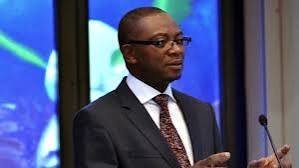The Development Alternative Incorporated has said that a society like Nigeria cannot rely on intrinsic values to fight endemic corruption in the country
Its Country Director and former Director General of Bureau of Public Services Reforms (BPSR), Dr. Joe Abah stated this on Tuesday in Abuja while delivering a keynote speech at the Behavioural Change Conference 2024 titled, “Nigeria at a critical crossroad: Securing the future with enduring anti-corruption policies.”
He recalled that in 1996, 1997 and 2000, Nigeria was ranked as the most corrupt country in the world by Transparency International.
Abah added that by 2008, Nigeria’s ranking had improved dramatically by 58 places, ranking 121 out of 180 countries assessed, making it the 59th most corrupt country.
He, however, lamented that Nigeria had since regressed and is currently ranked 145 out of 180 countries, making it the 35th most corrupt in the world.
The country-director stressed that as far as the issue of corruption was concerned, Nigeria has been at a critical crossroads for a very long time.
Abah emphasised that there were allegations of corruption against First Republic politicians in the 1960s, adding that the coup announcement of every single military coup in Nigeria has mentioned corruption as one of the key justifications for the coup.
His words: “In Nigeria, there is a longstanding debate about whether corruption is motivated by need or greed. It is a valid argument that nobody takes a job not knowing what that job pays and that, therefore, the low pay of public servants cannot justify their corruption.
“However, where a public servant is paid so little that they cannot even transport themselves to work, it should not be surprising that they will seek other ways to survive.
“In a country without a robust welfare system, any economic or health shock, like a major illness, will immediately render many public servants statistically poor. And so, the argument that many are corrupt because of a simple need to survive can be quite compelling.”
Abah stressed that many public servants approach retirement in the knowledge that they cannot afford a decent second-hand car, do not have a house to retire to and cannot afford decent healthcare in their old age.
“However, if people are corrupt because of the need to obtain just enough money to live a decent life, why are the rich corrupt? Many people who perpetrate grand corruption do not do so because of a basic need to lead a decent life. This is where the ‘greed as a motivation for corruption’ argument comes in,” he said
Abah said that another factor that has been advanced in explaining the psychology of corruption is culture.
He stressed that in theorising about Africa’s underdevelopment, Peter Ekeh in his seminal article ‘Colonialism and the Two Publics’ theorises that in the mind of any nation that has ever been colonised, there are two publics: the civic and the primordial public.
Quoting Ekeh, Abah said: “The civic public is the system of administration brought by the colonialists (like the ministries, departments and agencies, the three arms of government), while the primordial public is your intrinsic allegiance to ancestral lineage, your village and your ethnic group.
“He argues that in the mind of the post-colonial, his duty is to extract from the civic public (the MDAs) to feed his primordial public. A public servant in a position to do so is expected to steal money from the system and build a mansion in his village. He is expected to manipulate all recruitments to favour those from his village and ethnic group and, in terms of contracts, his village people should be able to say, “It is our time to chop.”
“It is no wonder that, when I was the Director-General of the Bureau of Public Service Reforms, my village association in Abuja called me to say that I was not performing. “Not performing” did not mean that I was not doing my job well. It meant that I was doing my job too well and was not feeding my primordial public.”
Abah was of the view that the key issue around corruption is the presence of opportunity, saying he was convinced that if the opportunity is there, many people would perpetrate corruption regardless of need, greed, culture or ethics.
“Where efforts are not made to constrain corruption, perhaps the only constraint could be values, where someone chooses not to be corrupt because they have a reputation or family name that they wish to protect. However, in societies like Nigeria where the lines between right and wrong have been blurred, relying on intrinsic values is like expecting an amateur swimmer to swim against a very strong current,” he said.
Aba stressed that behavioural approaches to tackling corruption are helpful — they emphasised the need for strategic communication that highlights the consequences of corruption and the damaging effect that it has on society.
However, he said external pressure alone is not enough, saying that was why it is important that everyone appeals to the intrinsic values inculcated in them from birth and take advantage of one’s religiosity.

